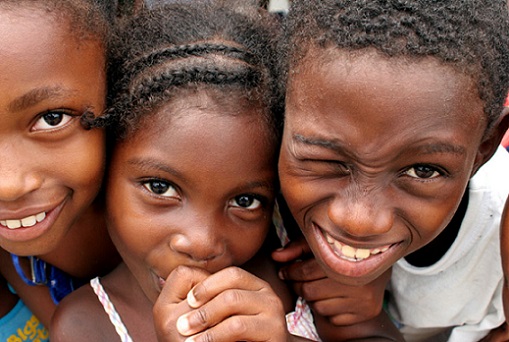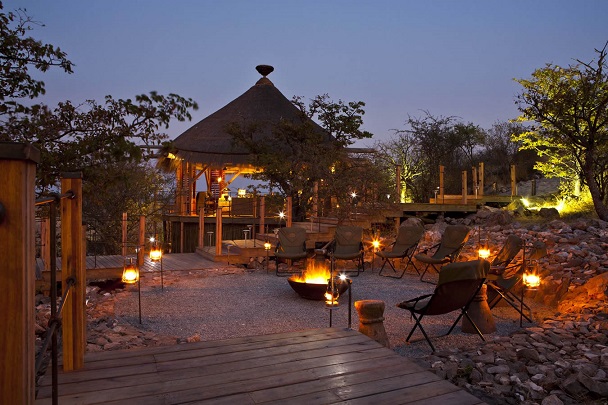Africa
The Cradle Of Mankind
The Ultimate Travel Guide: Top 20 Destinations for Every Explorer
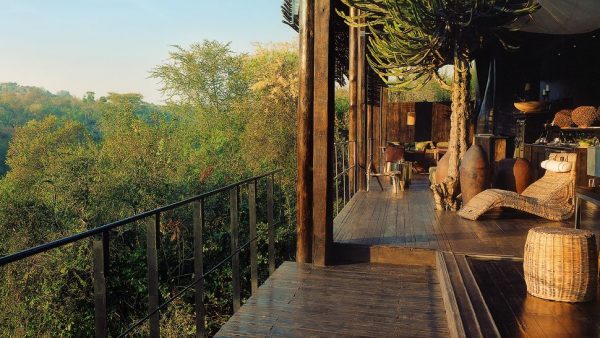
Embark on a thrilling expedition of Africa's marvels with our extensive travel guide. Immerse yourself in diverse cultures, awe-inspiring landscapes, and extraordinary wildlife encounters. Our guide offers valuable insights and information about the top tourist destinations, ensuring you are well-prepared for your African adventure. Witness the captivating Victoria Falls, one of the largest waterfalls worldwide. Be astonished by its power and magnificence as it descends into the Zambezi River.
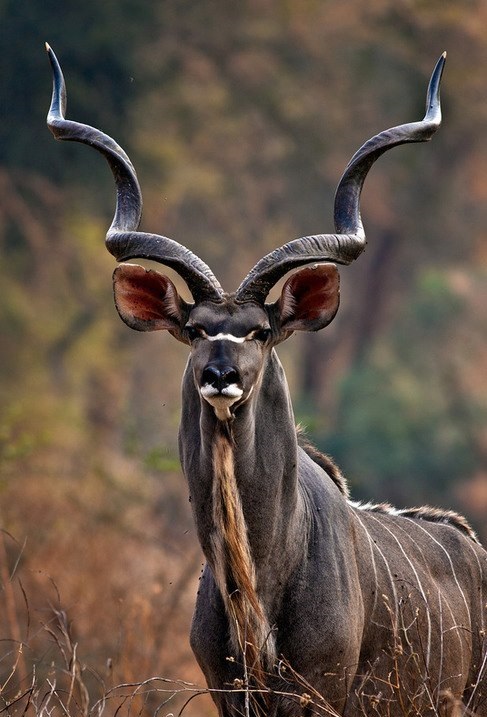
For wildlife enthusiasts, Africa is a paradise. Experience the renowned Big Five in acclaimed national parks such as Tanzania's Serengeti or South Africa's Kruger National Park. Observe the breathtaking migration of wildebeests across the vast savannahs. Africa also showcases stunning scenery. Delve into the sand dunes of Namibia's Namib Desert, the Atlas Mountains in Morocco, or the lush tropical rainforests in Uganda. Each destination promises a unique and unforgettable experience.
FrizeMedia serves as your reliable source for all things related to Africa. Our website provides comprehensive and updated information, ranging from visa requirements to local customs and traditions. Embark on an extraordinary adventure and uncover the wonders of Africa with FrizeMedia.
Africa covers an area of 30.4 million sq.km and that equates to about 20 percent of the total land surface of the earth and six percent of the earth surface. Africa is the second largest continent after Asia, and has approximately 980 million people. Africa accounts for about 14 percent of the world's human population. The Sahara desert, which is the worlds largest, Africa's largest lake, lake Victoria, the Kalahari desert, the river valleys of chad,the Zambezi and the Congo, together, dominate the African landscape. The river Nile which is 6,671 km in length, is the worlds longest river.
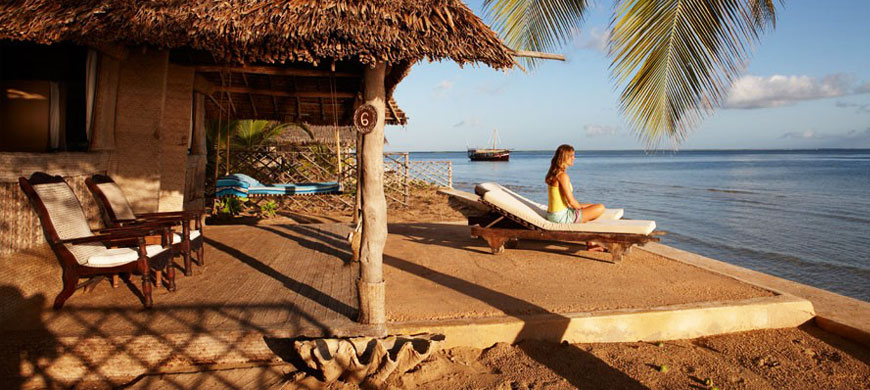
Africa stretches from the Mediterranean in the north, all the way to the Cape of Good Hope in the south and lies between the Atlantic and Indian Oceans. The African continent is divided into two by the vast Sahara desert. The northern part of Africa is populated by mostly light-skinned Berbers and Arabs. The southern part of Africa is mostly inhabited by dark-skinned peoples, Khoikoi, Bushmen and Pygmies. Africa's diversity makes it a must visit on any travelers list. From the lush Equatorial rainforest the thousands of unspoilt beaches, to the alpine tundra and the ice fields at the top of the continents highest peaks, the endless savannas and plains, Africa has it all.
Algeria
Travel Algeria
Angola
Angola The Republic
Benin
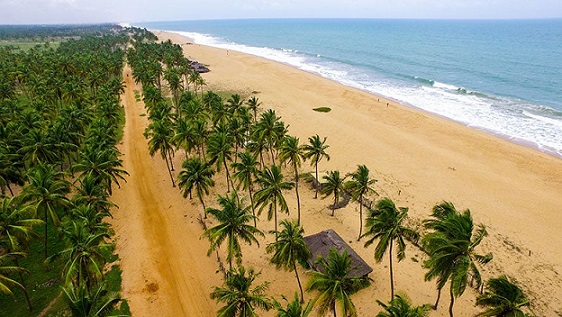
Benin: Cultural Rich Travel Destination in West Africa
Benin is a fascinating and culturally rich travel destination in West Africa, often overlooked by tourists but offering a unique blend of history, nature, and vibrant traditions. Here’s a guide to help you plan your trip:
Why Visit Benin?
1. Rich History & Culture – Benin is the birthplace of Vodun (Voodoo), with deep spiritual traditions and historic kingdoms like Dahomey.
2. UNESCO Sites – The Royal Palaces of Abomey and the stilt villages of Ganvié are must-sees.
3. Wildlife & Nature – Pendjari National Park (one of West Africa’s best for safaris) and W National Park offer elephants, lions, and more.
4. Beaches – Relax at Grand-Popo or Cotonou’s beaches.
5. Friendly Locals – Beninese people are welcoming, and tourism is still relatively undiscovered.
Best Time to Visit
- Dry Season (November–February) – Best for wildlife viewing and comfortable temperatures.
- Rainy Season (June–October) – Lush landscapes but some roads may be difficult.
Top Places to Visit
1. Cotonou – The economic hub with markets (Dantokpa), the Python Temple, and vibrant nightlife.
2. Ouidah – The heart of Vodun culture, home to the Route des Esclaves (Slave Route) and the Door of No Return.
3. Abomey – Historic Dahomey Kingdom palaces and museums.
4. Ganvié – "Venice of Africa," a stilt village on Lake Nokoué.
5. Pendjari National Park – Great for safaris (elephants, hippos, lions).
6. Grand-Popo – Scenic beaches and lagoons.
Travel Tips
- Visa: Most travelers need a visa (check requirements for your country).
- Health: Yellow fever vaccination is mandatory. Malaria prophylaxis recommended.
- Currency: West African CFA franc (XOF). Carry cash, as ATMs are limited outside cities.
- Language: French is official; local languages like Fon and Yoruba are widely spoken.
- Transport: Taxis, moto-taxis, and bush taxis are common. Renting a car with a driver is advisable for long trips.
- Safety: Generally safe, but avoid night travel and be cautious in crowded areas.
Is Benin a Good Travel Destination?
✅ Yes, if you:
- Love cultural and historical experiences.
- Enjoy off-the-beaten-path destinations.
- Are interested in Vodun traditions and African history.
- Want a mix of wildlife, beaches, and local culture.
❌ No, if you:
- Prefer luxury resorts and well-developed tourist infrastructure.
- Are uncomfortable with basic travel conditions in rural areas.
Final Verdict
Benin is an incredible destination for adventurous travelers seeking authentic African culture, history, and nature. While it lacks the tourist crowds of places like Ghana or Senegal, this makes it even more rewarding for those willing to explore.

Botswana
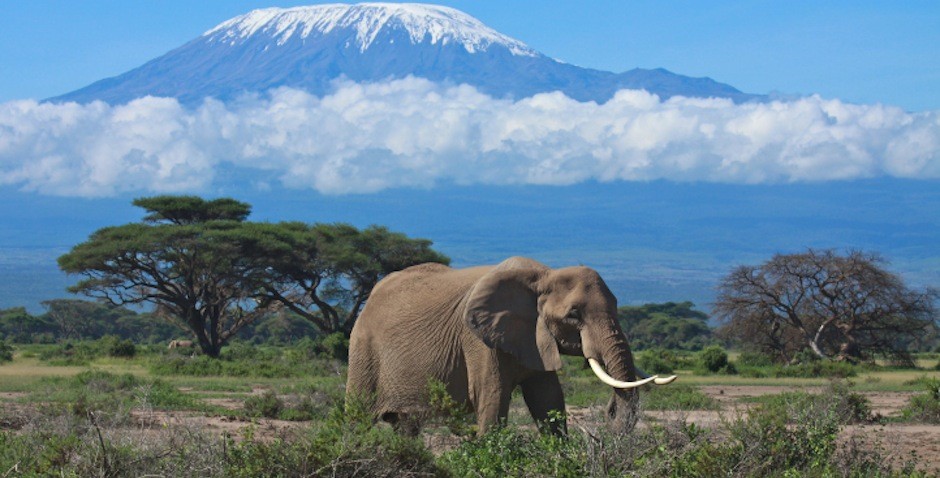
The majestic beauty of Africa's numerous regions has captivated a
great many Western explorers, even ignited wars and aroused the
interests of historians for centuries. Starting from the serene Mediterranean coast of North Africa to
the flourishing southern tip of Cape Town, the African continent spans
more than 10,000 indigenous tribes, more than 2000 languages and over 60
independent nations and territories. Africa is referred to as the cradle of human life for a good reason, it being the oldest inhabited territory in the world. Any individual who travels through Africa, will uncover the
modern day dilemma of a region advancing ahead with globalization and
technology. As a deduction of that, many tribes and cultures are determined to safeguard their traditional way of life. In addition to human life, Africa supports the world's most spectacular collection of rare species and biodiversity.
Burkina Faso
Burkina Faso Travel Guide: Essential Tips for an Unforgettable Journey
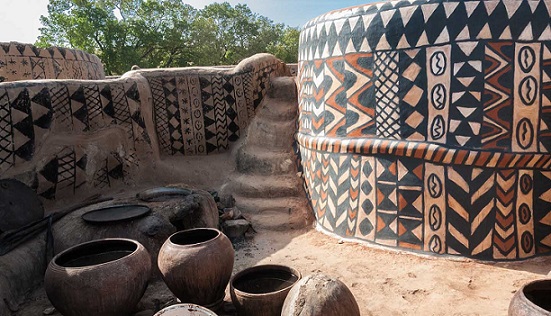
Burkina Faso, a landlocked country in West Africa, offers a unique blend of cultural heritage, vibrant traditions, and stunning natural landscapes.
While it’s not a typical tourist hotspot, it’s a fantastic destination for adventurous travelers seeking authentic experiences. Here’s a travel guide with tips for visiting Burkina Faso:
Best Time to Visit
- November to February: Coolest and driest months, ideal for travel.
- March to May: Hot and dry, with temperatures exceeding 40°C (104°F).
- June to October: Rainy season, some roads may become impassable.
Top Destinations
1. Ouagadougou (Ouaga) – The lively capital with markets, museums, and cultural events.
- Must-see: Musée de la Musique, Grand Market, Naba Koom Palace.
- Festival: FESPACO (Pan-African Film Festival, held biennially in February).
2. Bobo-Dioulasso – The country’s cultural heart, known for its music and colonial architecture.
- Must-see: Grand Mosque of Bobo (Sudano-Sahelian style), Dafra Sacred Crocodiles, Kibidwé Market.
- Festival: Festival International de la Culture Hip Hop (November).
3. Banfora – A scenic area with waterfalls and rock formations.
- Must-see: Karfiguéla Waterfalls, Dômes de Fabedougou, Lake Tengrela (home to hippos).
4. Sindou Peaks – Striking sandstone formations, perfect for hiking and photography.
5. Arli National Park & W National Park – Wildlife safaris (elephants, lions, antelopes).
6. Loropeni Ruins – A UNESCO-listed ancient stone fortress, dating back over 1,000 years.
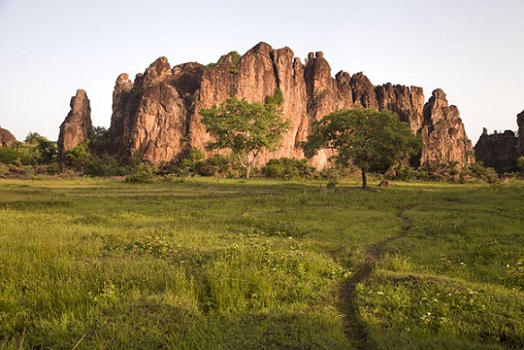
Burkina Faso Sindou Peaks
Travel Tips & Safety
- Visa: Required for most nationalities (check with the Burkina Faso embassy).
- Health: Yellow fever vaccination mandatory. Malaria prophylaxis recommended.
- Safety: Check travel advisories due to political instability and security concerns in some regions (especially northern areas).
- Currency: West African CFA franc (XOF). Cash is king; credit cards are rarely accepted outside major hotels.
- Language: French is official; local languages include Mooré, Dioula, and Fulfulde.
- Transport: Buses (e.g., STAF) connect major cities. Mototaxis and rented cars are common.
- Local Etiquette: Dress modestly, ask permission before taking photos, and greet people respectfully.
Cultural Experiences
- Attend a traditional mask dance (common among the Bwa and Lobi people).
- Visit a local weaving village (like Tiebele, known for painted Kassena houses).
- Try Burkinabé cuisine: Riz Gras (spiced rice), Poulet Bicyclette (grilled chicken), Tô (millet or sorghum porridge).

Here are some fun facts and historical highlights about Burkina Faso, a landlocked country in West Africa known for its rich culture, music, and resilience.
Fun Facts About Burkina Faso:
1. Name Meaning – "Burkina Faso" translates to "Land of Honest (Incorruptible) People" in Moré (Burkina) and Dioula (Faso). The name was adopted in 1984 under President Thomas Sankara.
2. Former Colonial Name – It was called Upper Volta (Haute-Volta) under French rule, named after the Volta River.
3. Capital City – Ouagadougou (often called "Ouaga") is the capital and largest city. Its name comes from the Moré language, meaning "where people get honor and respect."
4. Unique Cultural Festivals –
- FESPACO (Pan-African Film and Television Festival of Ouagadougou) is Africa’s biggest film festival.
- The International Arts and Crafts Fair (SIAO) showcases African handicrafts.
5. Music & Dance – Burkina Faso is famous for its traditional balafon (wooden xylophone) music and djembe drumming. The country has produced internationally renowned artists like Smockey and Sana Bob.
6. Giant Mosques – The Grand Mosque of Bobo-Dioulasso is an impressive example of Sudano-Sahelian architecture, built entirely from mud bricks.
7. No Coastline – Burkina Faso is landlocked, surrounded by six countries: Mali, Niger, Benin, Togo, Ghana, and Côte d'Ivoire.
8. Cotton & Gold – It’s one of Africa’s top cotton producers and has significant gold reserves, making gold its leading export.
9. Soccer Passion – Football (soccer) is hugely popular, and the national team is nicknamed "Les Étalons" (The Stallions).
10. Thomas Sankara – Known as "Africa’s Che Guevara," Sankara was a revolutionary leader (1983–1987) who promoted gender equality, healthcare, and self-sufficiency before his assassination.
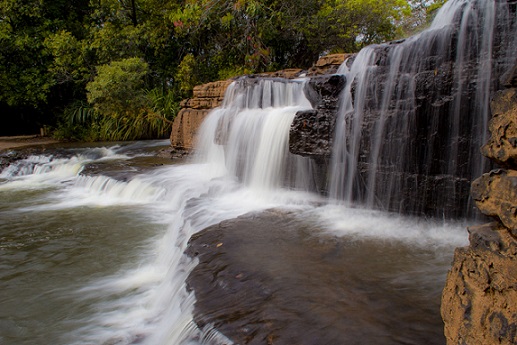
Brief History of Burkina Faso:
- Pre-Colonial Era: The region was home to the Mossi Kingdoms (11th–19th century), which resisted Islamic and European invasions for centuries.
- French Colonization (1896–1960): Burkina Faso became a French colony as part of French West Africa.
- Independence (1960): Gained independence on August 5, 1960, with Maurice Yaméogo as its first president.
- Instability & Coups: The country experienced multiple military coups, notably in 1966, 1980, 1983 (Sankara’s revolution), and 1987 (Sankara’s assassination).
- Blaise Compaoré’s Rule (1987–2014): Sankara’s successor ruled for 27 years before being ousted in a popular uprising.
- Recent Turbulence: Since 2015, Burkina Faso has faced jihadist insurgencies and further coups (2022, 2023).
Bonus:
- Symbol of Resistance – The "Lion of Burkina Faso" represents bravery, inspired by the extinct Barbary lions of North Africa.
- Cuisine – Staple foods include tô (millet or sorghum porridge) with peanut or okra sauce, and riz gras (spiced rice with meat).
Final Advice
Burkina Faso is best suited for off-the-beaten-path travelers who appreciate culture, history, and nature. Stay updated on security, respect local customs, and embrace the warm hospitality of the Burkinabé people.
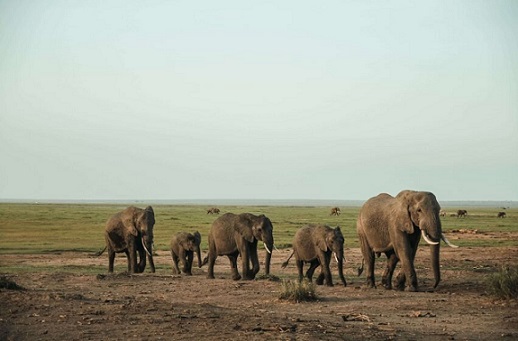

Burundi
Burundi Uncovered: Top Travel Tips & Must-See Destinations
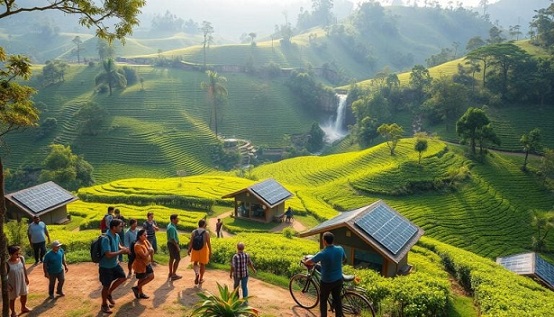
From Lake Tanganyika and its capital, Bujumbura, to national parks and cultural sites, Burundi provides a variety of travel experiences.
With opportunities for animal exploration and ecotourism, the tourism sector is gradually expanding despite still being relatively undeveloped.
However, travel planning should take infrastructural constraints and safety concerns into account.
Burundi, a small but stunning country in East Africa, is often overlooked by travelers, yet it offers lush landscapes, rich culture, and unique wildlife. If you're planning a trip to this hidden gem, here’s everything you need to know for a smooth and memorable experience.
Why Visit Burundi?
- Scenic Beauty: From the shores of Lake Tanganyika to the rolling tea plantations, Burundi is full of picturesque landscapes.
- Wildlife & Nature: Explore national parks like Rusizi National Park (home to hippos and birds) and Kibira National Park (a rainforest with primates).
- Cultural Heritage: Experience traditional drumming performances, a UNESCO-recognized art form, and visit historical sites like Gitega’s National Museum.
- Adventure & Relaxation: Hike the Congolese Nile Trail, enjoy Lake Tanganyika’s beaches, or visit the Karera Waterfalls.
Essential Travel Tips for Burundi
1. Visa & Entry Requirements
- Most travelers need a visa, which can be obtained on arrival or from a Burundian embassy.
- Check if your country is eligible for visa-free entry (e.g., East African Community citizens).
- A yellow fever vaccination certificate is mandatory.
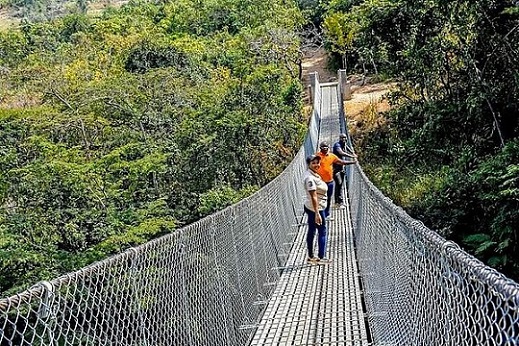
2. Best Time to Visit
- Dry Season (June–September): Ideal for wildlife viewing and hiking.
- Rainy Season (October–May): Lush greenery but some roads may be difficult to navigate.
3. Safety & Security
- While Burundi is generally safe, check travel advisories before visiting.
- Avoid border areas with the DRC due to occasional instability.
- Use registered taxis and avoid traveling at night in remote areas.
4. Health Precautions
- Vaccinations Recommended: Yellow fever (required), hepatitis A/B, typhoid, and malaria prophylaxis.
- Drink bottled or boiled water to avoid waterborne diseases.
5. Currency & Payments
- The official currency is the Burundian Franc (BIF).
- Credit cards are rarely accepted outside major hotels—carry cash (USD or Euros can sometimes be exchanged).
- ATMs are available in Bujumbura but may be unreliable.
6. Transportation
- Public Transport: Minibuses ("taxi-buses") are cheap but crowded.
- Car Rentals: Recommended for flexibility, but roads outside cities can be rough.
- Motorcycle Taxis ("taxi-motos"): Common but ensure you wear a helmet.
7. Language & Communication
- Official Languages: Kirundi and French.
- English is not widely spoken—learn basic French phrases.
- SIM cards (e.g., Econet, Lumitel) are affordable for mobile data.
8. Cultural Etiquette
- Dress modestly, especially in rural areas.
- Always greet locals politely—Burundians value respect.
- Ask for permission before taking photos of people.
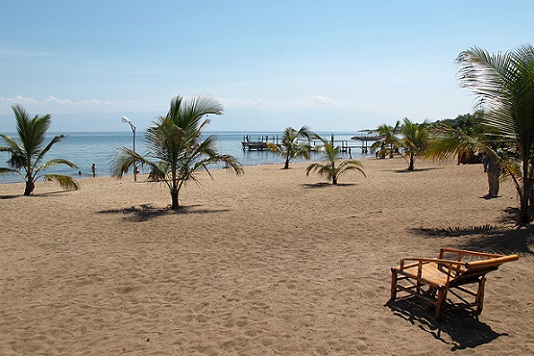
Top Places to Visit in Burundi
1. Bujumbura (Capital City)
- Lake Tanganyika Beaches (Saga Beach, Playa)
- Livingstone-Stanley Monument (historic meeting point of explorers)
- Burundi Geological Museum (unique mineral exhibits)
2. Gitega (Cultural Hub)
- National Museum of Gitega (traditional artifacts & royal drums)
- Gishora Drum Sanctuary (UNESCO-listed drum performances)
3. Natural Attractions
- Rusizi National Park (hippos, crocodiles, birdwatching)
- Kibira National Park (rainforest hikes & primates)
- Karera Waterfalls (scenic waterfalls near Rutana)
4. Lake Tanganyika Activities
- Snorkeling & Fishing (one of the world’s deepest lakes)
- Sailing & Sunset Cruises
Final Tips for a Great Trip
✔ Respect local customs – Burundians are warm but appreciate cultural sensitivity.
✔ Travel with a guide – Helps navigate language barriers and remote areas.
✔ Try local food – Sample dishes like brochettes (grilled meat), isombe (cassava leaves), and fried plantains.
✔ Stay connected – Purchase a local SIM for affordable internet access.
Burundi remains an off-the-beaten-path destination with incredible potential for adventurous travelers. With proper planning, you can enjoy its natural beauty, vibrant culture, and welcoming people safely.
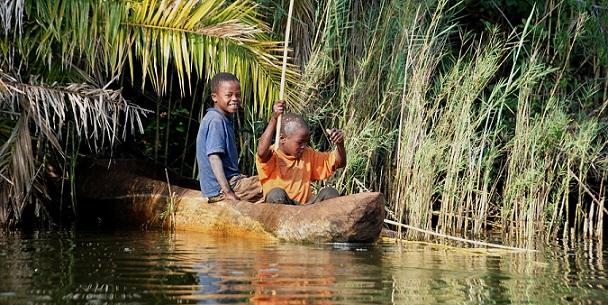
Here are some fun facts and historical highlights about Burundi:
Fun Facts About Burundi:
1. "The Heart of Africa" – Burundi is often called the "Heart of Africa" due to its shape and central location on the continent.
2. Drumming Tradition – Burundi is famous for its traditional drumming, called karyenda. The royal drums (like Ruciteme and Murimirwa) are sacred symbols of the country.
3. Coffee & Tea Economy – Burundi is one of the world’s poorest countries but is a major coffee and tea producer. Coffee accounts for a large part of its exports.
4. Lake Tanganyika – The world’s second-deepest lake (after Russia’s Lake Baikal) borders Burundi and is home to unique fish species like the goliath tigerfish.
5. Two Capital Cities – Bujumbura was the capital until 2019, when Gitega was declared the new political capital (though Bujumbura remains the economic hub).
6. Birthplace of the Twa, Hutu & Tutsi – Burundi, along with Rwanda, is home to the three major ethnic groups: the Twa (pygmies), Hutu (majority), and Tutsi (minority but historically dominant).
7. No Official Winter – Burundi has a tropical climate with wet and dry seasons but no real winter. Temperatures stay around 20–25°C (68–77°F) year-round.
8. National Dish: Ugali & Beans – A staple food is ugali (maize porridge) served with beans, plantains, or meat.
9. High Population Density – Burundi is one of Africa’s most densely populated countries, with over 12 million people in a small area.
10. Olympic Gold in… Running? – Burundi won its first Olympic gold medal in 1996 (Atlanta) when Venuste Niyongabo won the 5,000 meters.
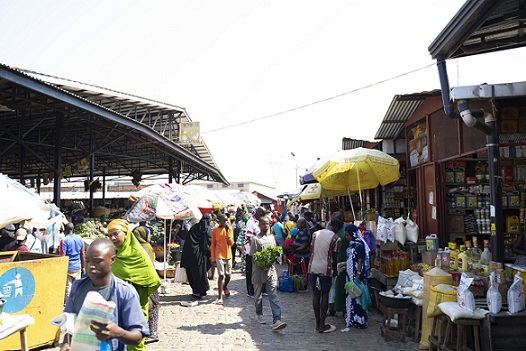
History of Burundi:
- Pre-Colonial Era (1600s–1890) – The Kingdom of Burundi was established in the 17th century under mwami (king) Ntare I. It was a centralized monarchy with Tutsi rulers and Hutu farmers.
- German & Belgian Colonization (1890–1962) – Burundi became part of German East Africa (1890) before Belgium took control after WWI (1916). It was ruled jointly with Rwanda as Ruanda-Urundi.
- Independence (1962) – Burundi gained independence from Belgium on July 1, 1962, as a monarchy under King Mwambutsa IV.
- Ethnic Conflicts & Civil Wars – After independence, tensions between Hutus and Tutsis led to violence, including the 1972 Hutu genocide (100,000+ killed) and a long civil war (1993–2005) following the assassination of the first Hutu president, Melchior Ndadaye.
- Modern Burundi – Since 2005, the country has been relatively stable but remains politically tense. Pierre Nkurunziza (a former rebel leader) ruled for 15 years until his death in 2020, and his party (CNDD-FDD) remains in power.
Did You Know?
- Burundi’s flag has three stars, representing the country’s three main ethnic groups (Hutu, Tutsi, Twa) and its national motto: "Unity, Work, Progress."
- It is one of the few countries where drumming is a UNESCO Intangible Cultural Heritage.
- Burundi and Rwanda were one colonial territory (Ruanda-Urundi) before splitting in 1962.
Happy travels!

Cameroon
Cameroon Travel Guide: History, Culture & Must-See Attractions
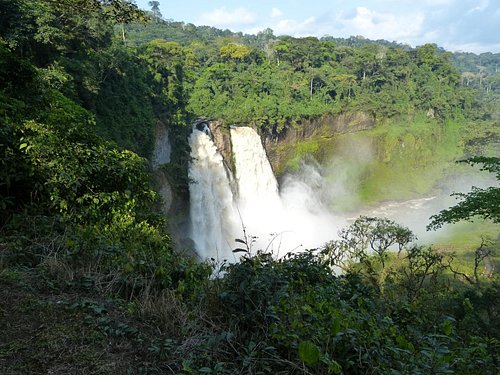
Located at the intersection of western and central Africa, Cameroon is a nation notable in the western African region for its highly urbanized populace and rich cultural diversity.
The capital, Yaoundé, which is tucked away in the country's south-central region, serves as the political and administrative center of the nation.
The country’s name originates from Rio dos Camarões (“River of Prawns”), a term coined by Portuguese explorers in the 15th and 16th centuries to describe the Wouri River estuary. Over time, Camarões also came to refer to the nearby mountains. In English usage until the late 19th century, “the Cameroons” specifically denoted the mountainous region, while the estuary was known as the Cameroons River or, colloquially, the Bay. The name Kamerun was later adopted by the Germans in 1884 to encompass their entire protectorate, which closely aligns with the modern nation’s borders.
Cameroon is a fascinating and diverse country in Central Africa, often called "Africa in Miniature" due to its varied landscapes, cultures, and wildlife. Here’s a comprehensive guide for travelers, including fun facts and history!
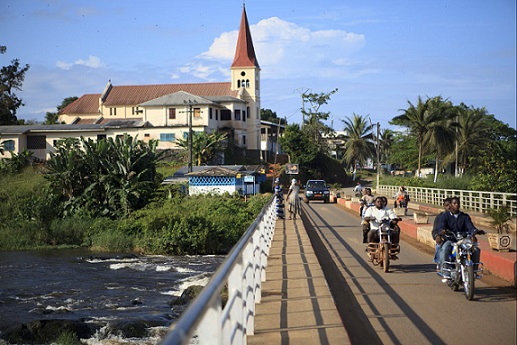
Brief History of Cameroon
- Early Inhabitants: The Baka (Pygmies) were among the earliest inhabitants, followed by Bantu migrations.
- European Contact: Portuguese explorers arrived in the 15th century, naming the area Rio dos Camarões ("River of Prawns"), which later became "Cameroon."
- Colonial Rule: Germany colonized Cameroon in 1884, but after WWI, it was split between France (80%) and Britain (20%).
- Independence: French Cameroon gained independence in 1960, and British Southern Cameroons joined in 1961, forming the Federal Republic of Cameroon.
- Modern Cameroon: Today, it’s a bilingual (French/English) country with over 250 ethnic groups.
Travel Tips & Tourism Guide
Best Time to Visit
- Dry Season (November-February): Best for wildlife safaris and hiking.
- Rainy Season (June-October): Lush landscapes but difficult road travel.
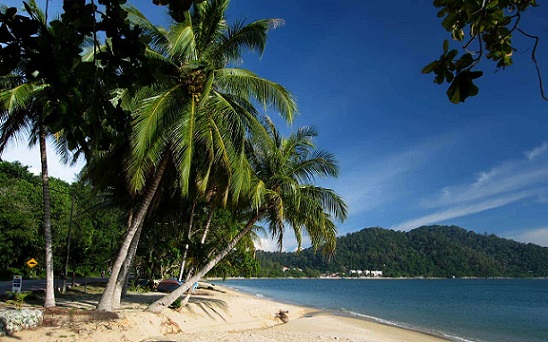
Top Destinations
1. Yaoundé – The political capital with museums and vibrant markets.
2. Douala – Economic hub, nightlife, and nearby beaches.
3. Mount Cameroon – Active volcano (4,095m), great for trekking.
4. Waza National Park – Lions, elephants, and giraffes in the Sahel.
5. Limbe – Coastal town with black sand beaches and a wildlife center.
6. Bamenda Highlands – Stunning scenery and traditional kingdoms.
7. Dja Faunal Reserve – UNESCO-listed rainforest with gorillas and chimps.
8. Foumban – Royal palace and center of Bamoun culture.
Visa & Entry
- Most visitors need a visa (check requirements based on nationality).
- Yellow fever vaccination certificate required.
Currency & Costs
- Currency: Central African CFA Franc (XAF).
- Budget:
- Budget travelers: $30–$50/day.
- Mid-range: $70–$150/day.
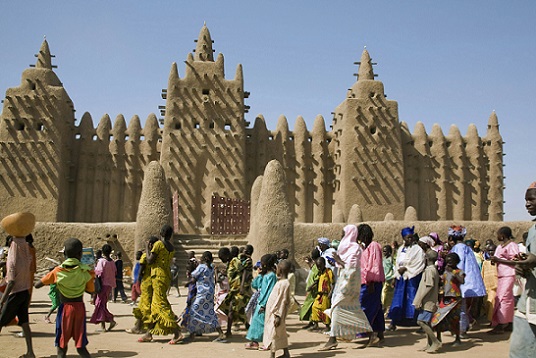
Transportation
- Taxis & Buses: Common in cities (negotiate fares).
- Bush Taxis: For intercity travel (often crowded).
- Domestic Flights: Connect major cities (Camair-Co).
Safety Tips
- Generally safe, but be cautious in big cities (avoid night walks alone).
- Northwest & Southwest regions have occasional unrest (check advisories).
- Drink bottled water to avoid stomach issues.
Fun Facts About Cameroon
1. Linguistic Diversity: Over 250 languages spoken (French & English are official).
2. Football (Soccer) Passion: Home to Samuel Eto'o and the Indomitable Lions.
3. Coffee & Cocoa Powerhouse: One of Africa’s top producers.
4. Double Volcano: Lake Nyos & Lake Monoun are deadly CO₂-rich lakes.
5. Traditional Kingdoms: The Bamoun, Bafut, and Tikar still have powerful chiefs.
6. Music & Dance: Makossa (popular music genre) originated here.
7. Unique Wildlife: Home to gorillas, chimpanzees, and the rare Goliath frog.
8. Diverse Landscapes: Beaches, deserts, mountains, and rainforests in one country!
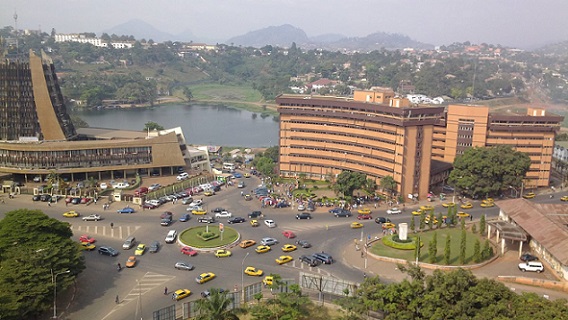
Must-Try Cameroonian Dishes
- Ndolé – Bitterleaf stew with nuts and fish/meat.
- Achu Soup – Yellow soup with cocoyam paste.
- Grilled Fish & Plantains – Popular in coastal areas.
- Poulet DG – Fancy chicken dish with plantains.
- Bobolo – Fermented cassava sticks.
Cultural Etiquette
- Greetings: Handshakes are important; use titles like "Mister" or "Madam."
- Respect Elders: Always show deference to older people.
- Dress Modestly: Especially in rural areas and religious sites.
- Photography: Ask permission before taking pictures of people.
Final Thoughts
Cameroon is an underrated gem with incredible diversity, whether you love wildlife, hiking, culture, or beaches, it has something for everyone. Just plan ahead, stay aware of local conditions, and embrace the adventure!
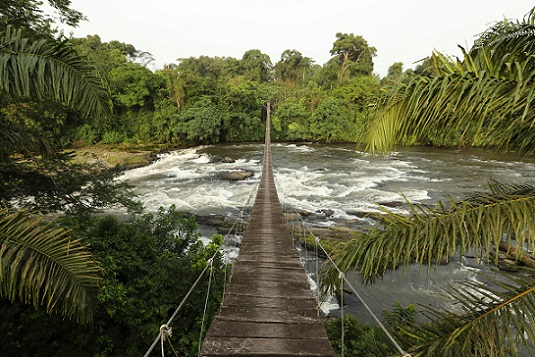

Cape Verde
Central African Republic
Chad

Witnessing Africa's wilderness is not only a phenomenal experience, but also a once-in-a-lifetime privilege that forthcoming generations may not have the opportunity to share. The incredibly overwhelming expanse of the African continent is best understood and traveled by region. The various regions in Africa are exclusively as diverse as the continent in its entirety, and the complexities of the nationalities and cultures will definitely leave the unsuspecting traveler bewildered. The largely Arabic culture of North Africa basks in the Mediterranean shoreline, from the magnificent pyramids in Egypt to the splendid Moorish architecture of Morocco. The adventuring kind will find the Sahara Desert to the south and brings to this region, drier and hotter summers in comparison with its Mediterranean neighbors in the north. Along the Atlantic Ocean, West Africa predominantly comprises of Africa's Savannah, recognised for their exciting wildlife safaris.
Comoros
Cote D'voire
Democratic Republic Of The Congo
Djibouti
Egypt
Nile Cruise In the Footpath Of The Pharaohs
Equatorial Guinea
The western part is also home to Africa's greatest cultural and political diversity, mainly a consequence of the colonial period and the Slave Trade. East Africa is one of the most favorite destinations where Africa's two tallest peaks, Mount Kilimanjaro and Mount Kenya, soar majestically over splendid concentrations of elephants, water buffalo and rhinoceros. Travellers to the east will also have the benefit to explore the Great Rift Valley, a geologic wonder formed by the movement of the earth's plates. The Southern part of Africa is a great mix of forests, grasslands and deserts rich with gold and diamonds. Travel in southern Africa is unique due to the high population of Europeans and Indians;consequently, a distinct culture of music, art, food and religion has emerged from the blending of great traditions. Prolific urban centers, stunning national parks and endless encounters with the history, is only the introduction of your African travels. Travel to Africa and meet the numerous faces of our global history. The consistent experience and intellectual intrigue of this multifaceted and ancient continent is a journey that will be treasured for life.
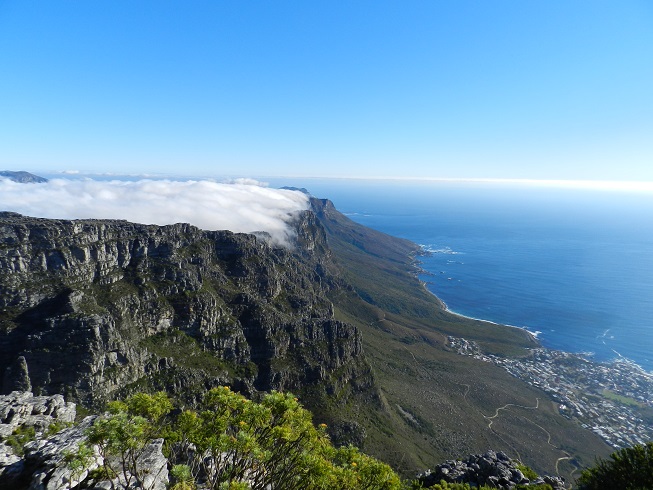
Eritrea
Ethiopia
Gabon
Gambia
Ghana
Kwame Nkrumah Memorial Park And Mausoleum
Exploring Tourism and Travel in Ghana
Mole National Park A Top Tourist Attraction In Ghana
Kakum National Park Famed For Its Treetop Walkway
Guinea
Top 10 Attractions In Africa
1. MOUNT KILIMINJARO – TANZANIA
The highest mountain on the African continent, ‘Kili’ measures an astounding 19,340 feet at her highest point.
The challenge to climb this majestic mountain has lured many to scale her heights, a demanding but worthwhile ascent by most accounts. Kili, which has five distinct ecological zones, is an extinct volcano.
2. OKAVANGO DELTA - BOTSWANA
The champagne-coloured waterways of this famous floodplain form the basis of a pristine Wetland of International Importance (RAMSAR).
With some of the most fantastic birding globally and a wild dog population, the largest inland delta in the world is often called Africa’s most beautiful destination.
The region can be explored by land, boat and air. Enjoy the spectacular diversity of flora and fauna species.
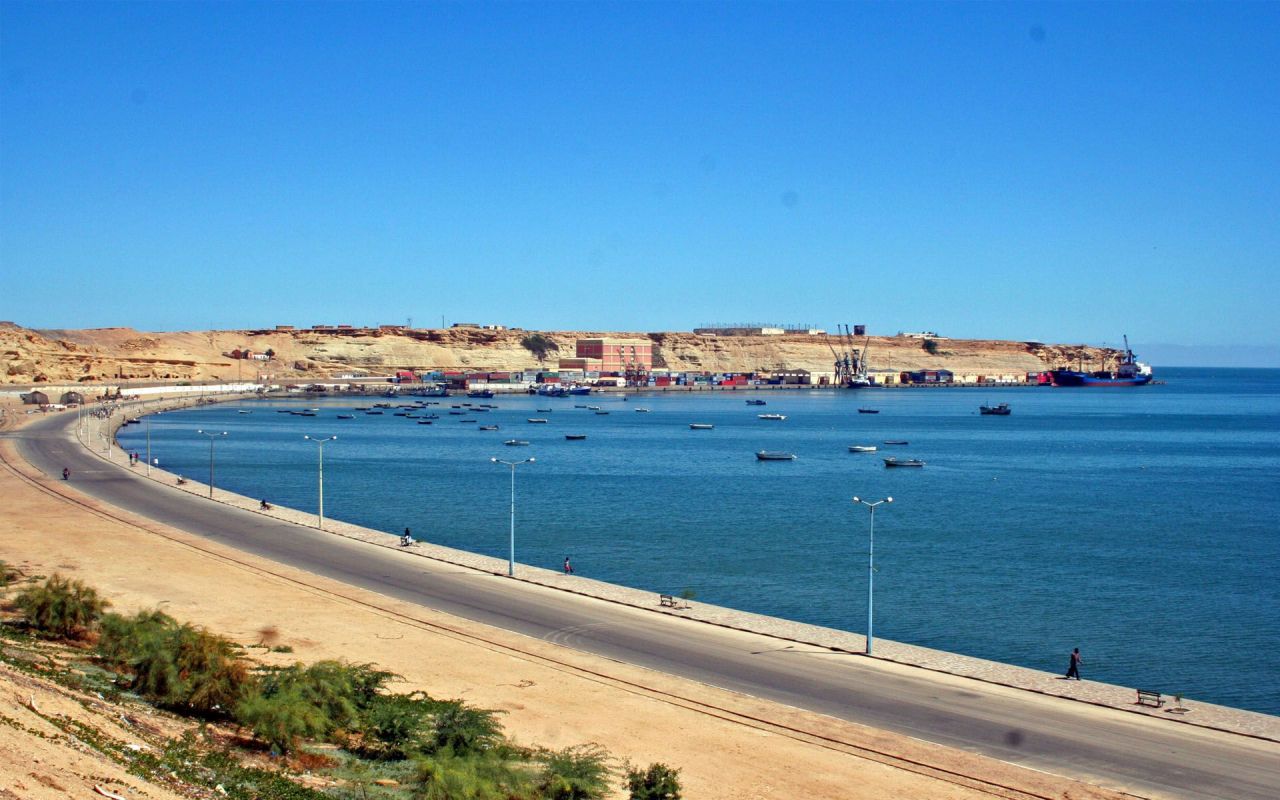
Guinea Bissau
Kenya
Manda Bay Resort
Lesotho
Liberia
Libya
Madagascar
Malawi
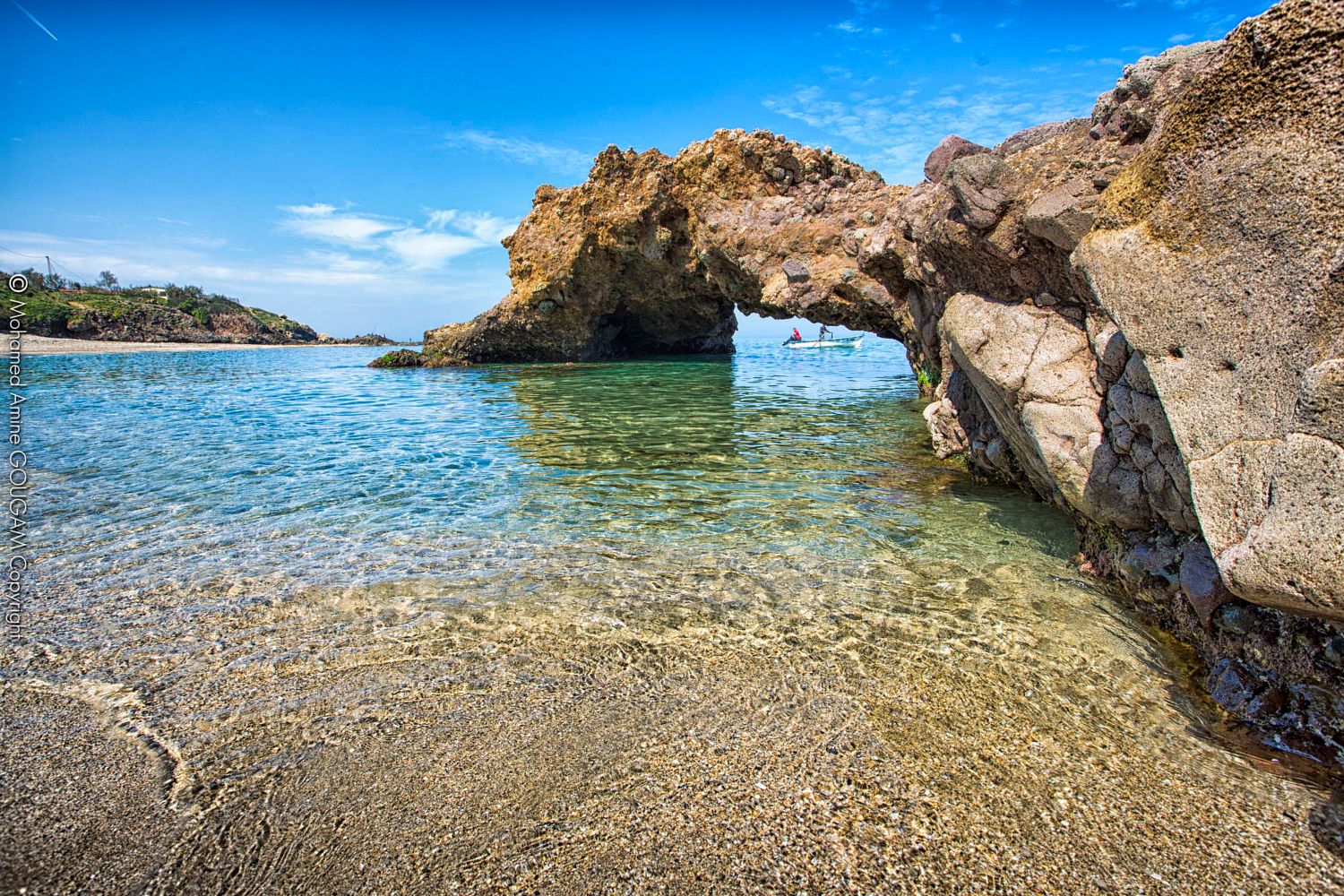
3. THE EGYPTIAN PYRAMIDS
Easily the most recognizable of the 7 Wonders of the World, the Egyptian Pyramids have long held fascination for thousands of people. Recent resurgence of interest Egyptology has made trips to this alluring destination more popular than ever. The majority of visitors view the pyramids at Giza. The origins of these majestic structures continue to be a source of lively debate, while the stories of ancient curses and grave robbers delight us all.
4. PONTA DO OURO – MOZAMBIQUE
With around 100 Bottlenose and Spinner dolphins making the sheltered waters of Ponta du Ouro their home, this region is definitely worth visiting. Dive the reefs to 40 metres in depth; they are teeming with a rainbow of marine life. Dolphin dives are a popular while in winter the haunting call of the humpback whale can be heard.

Mali
Mauritania
Mauritius
Morocco
Mozambique
Namibia
Namibia Is A True Paradise For The Adventure Traveler
5. KRUGER NATIONAL PARK - SOUTH AFRICA
The oldest, most established reserve in Africa, the Kruger boasts an amazing variety of game and bird life throughout its numerous habitats. The fantastic opportunities to view the Big Five draw many visitors to the park, hoping to spot lion, elephant, buffalo, leopard and black rhinoceros. Game drives and guided walking trails offer great animal watching opportunities in the African bush.
6. DJEMAA el FNAA SQUARE – MARRAKESH – MOROCCO
A tapestry of colours, smells, sites and wonderful local characters make a visit to this bustling marketplace an unforgettable experience. Be entertained by fortune tellers, street performers and henna women. The Municipal Market sells local fresh produce. Take a ride in a Horse-drawn carriage and enjoy the spectacular sunset. More performers come out in the evening and entertain till midnight.
Enjoy the famous local orange juice or mint tea!
Nigeria
Republic Of The Congo
Rwanda
Sao Tome And Principe
Senegal
Seychelles
7. THE SERENGETI - TANZANIA
The Serengeti National Park, covering 14,763 sq. km, is named ‘endless plains’ in Masai. Here are 35 species of mammals, including wildebeest, zebra, lion, cheetah, leopard, elephant and giraffe, and over 200 species of birds. The annual wildebeest migration is possibly the most spectacular natural event in Africa.
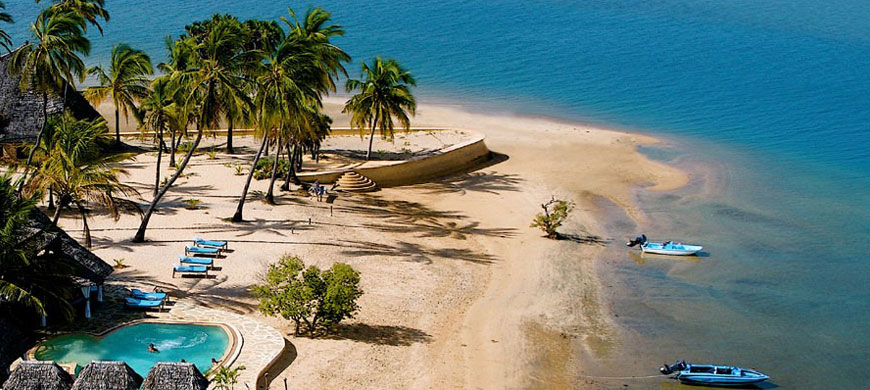
Sierra Leone
Somalia
South Africa
South Africa Vacations
South Africa Safaris
Table Mountain Cape Town
Sudan
Swaziland
8. THE VICTORIA FALLS – ZIMBABWE
From either Zimbabwe or Zambia you can experience the world’s largest sheet of falling water. The spray can be seen up to 30 kilometers away - hence the local name ‘Mosi-oa-Tunya’ - "The smoke that thunders". Apart from the spectacular views including permanent rainbows arcing across the face of the falls, one can experience the waters along the river at closer quarters with white water rafting.
Tanzania
Tanzania Safari
10 Top Rated Tourist Destination
Togo
Tunisia
We Are Helping 1000 Businesses Get Online
9. LAKE MALAWI
The 3rd largest lake in Africa is a tropical paradise. The tranquil waters lap against shores lined with palm, mango, banana and avocado trees. Here you can kayak, while snorkeling offers access to the colourful kaleidoscope of endemic cichlids found at this UNESCO world heritage site.
10. TABLE MOUNTAIN – SOUTH AFRICA
This iconic landmark stands in the centre of the beautiful city of Cape Town. Climb, or experience the wonders of the revolving cable car. Either way a visit to one of the most recognizable mountains in the world is a must for your trip around the great African continent. And while you’re there, enjoy the wonders of Cape Town –beaches, winelands, Robben Island – each one a ‘Top 10’ in its own right!
Uganda
Zambia
Zimbabwe
Tweet
Follow @Charlesfrize
